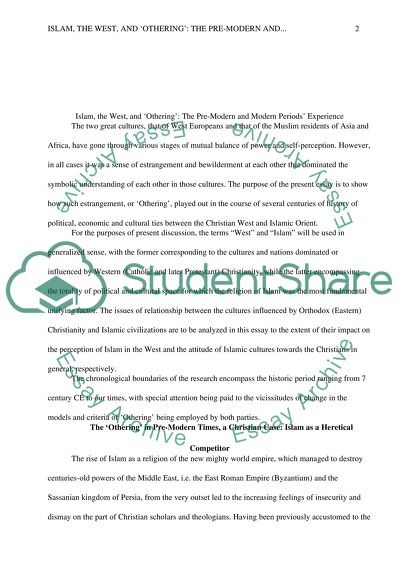Cite this document
(Islam, the West, and Othering: The Pre-Modern and Modern Periods Term Paper, n.d.)
Islam, the West, and Othering: The Pre-Modern and Modern Periods Term Paper. Retrieved from https://studentshare.org/history/1598914-answer-one-of-three
Islam, the West, and Othering: The Pre-Modern and Modern Periods Term Paper. Retrieved from https://studentshare.org/history/1598914-answer-one-of-three
(Islam, the West, and Othering: The Pre-Modern and Modern Periods Term Paper)
Islam, the West, and Othering: The Pre-Modern and Modern Periods Term Paper. https://studentshare.org/history/1598914-answer-one-of-three.
Islam, the West, and Othering: The Pre-Modern and Modern Periods Term Paper. https://studentshare.org/history/1598914-answer-one-of-three.
“Islam, the West, and Othering: The Pre-Modern and Modern Periods Term Paper”, n.d. https://studentshare.org/history/1598914-answer-one-of-three.


